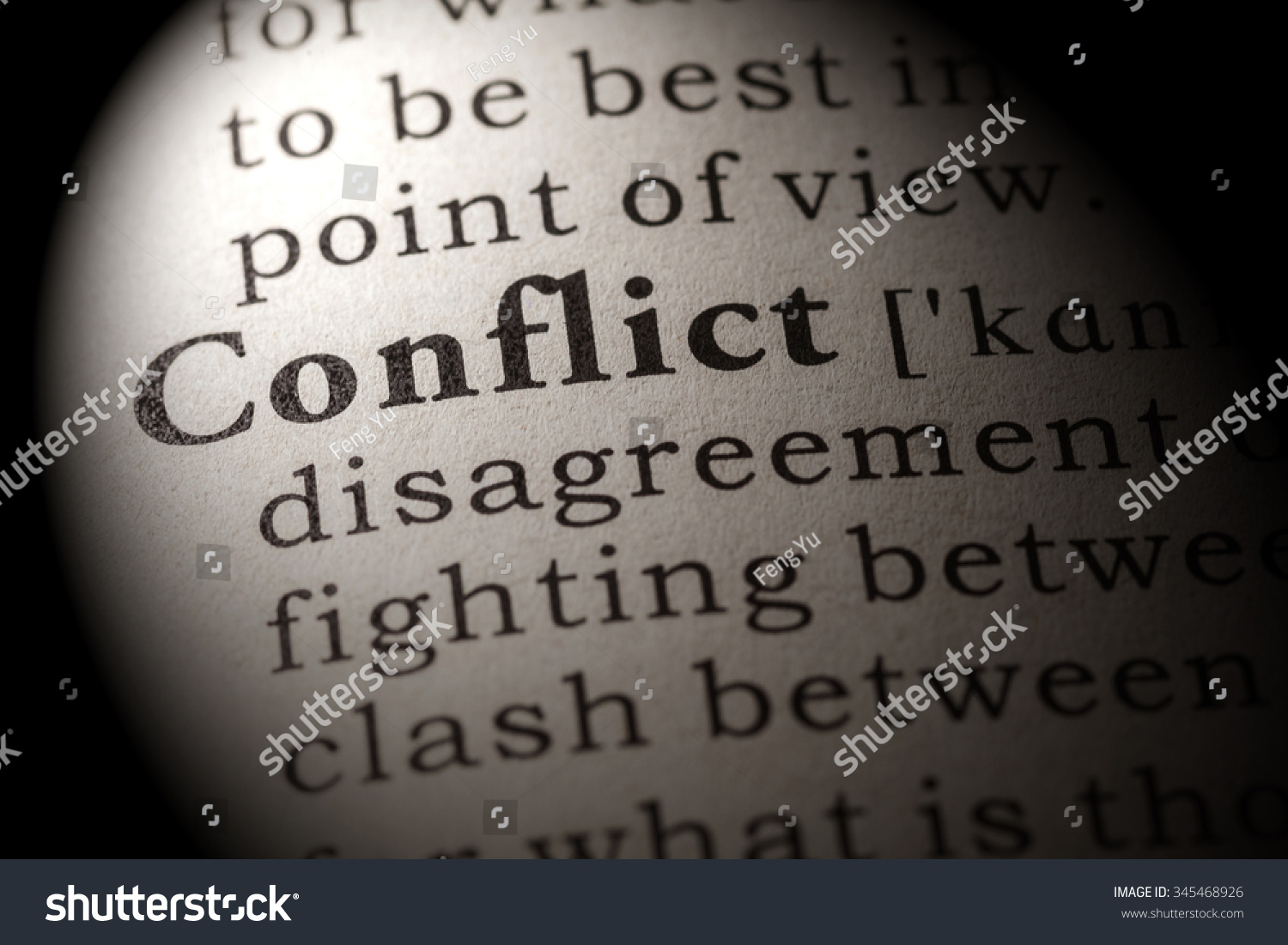Strife Meaning Dictionary

Pronunciation /strīf//straɪf/
noun
Not that sweet grove / Of Daphne, by Orontes and the inspired / Castalian spring, might with this paradise / Of Eden strive. Usage notes edit This is a catenative verb that takes the to infinitive.
Angry or bitter disagreement over fundamental issues; conflict.
- ‘Many Iraqis hope that it will head off sectarian strife and even civil war.’
- ‘Others said Allah was angry that Muslims were killing Muslims in ongoing civil strife.’
- ‘Plainly, this kind of guarantee is socially divisive, a recipe for religious controversy if not civil strife.’
- ‘It is probably the only symbol of stability in a car torn by wars, civil strife and violence.’
- ‘War and civil strife can lead to disease outbreaks by creating refugee disasters and a breakdown in public health care.’
- ‘However, sometimes strife and conflict help to clear the air and make for better understanding.’
- ‘It is best to go around them rather than encounter them directly or you end up in strife and conflict.’
- ‘The world had certainly changed but there is still far too much strife and conflict in it to be rightly called safe.’
- ‘It is a sign of sudden change through conflict and strife.’
- ‘After years of warfare and bitter strife, this King, Erasmus, changed the course of events for the two states forever.’
- ‘Obviously, to share a resource like water was to invite conflict and strife.’
- ‘This exchange remains a constant cause of strife and conflict in my chemistry.’
- ‘The hatred of one community against the other shall sow seeds of civil strife.’
- ‘The ethnic diversity of Surinam resulted in increasing racial and political strife after World War II.’
- ‘The controversy is fanning up strife between ethnic Taiwanese and mainlanders.’
- ‘While he understandably seeks to avoid civil strife, this strategy highlights the ease with which he can be defied.’
- ‘In the popular press there are a lot of stereotypes that depict Africa as a place full of famine and civil strife.’
- ‘Given the history of countries that have wallowed in civil strife, things will never be the same in Ivory Coast.’
- ‘They're able to return thanks to a peace agreement signed last year, ending three decades of civil strife in Angola.’
- ‘You are triumphant in conflicts after a period of strife and opposition.’
conflict, friction, discord, disagreement, dissension, variance, dispute, argument, quarrelling, wrangling, bickering, controversy, contentionView synonyms
Origin
Middle English shortening of Old French estrif (related to Old French estriver ‘strive’).
Pronunciation
Question: 'What does the Bible say about strife?' Answer:Strife is a strong and ongoing conflict over a fundamental issue.
Strife is deeper than argument, broader than disagreement. Strife usually involves and sometimes. We see strife today often in the political realm, as candidates for office launch vitriolic attacks against their political foes.
Strife within families can result in lifelong emotional scars. Strife between nations can lead to war. When strife occurs among believers, the church’s testimony is tarnished and Christ is dishonored.The Bible warns against strife and reproves those who cause it: “It is to one’s honor to avoid strife, but every fool is quick to quarrel” (Proverbs 20:3; see also Proverbs 18:6 and 22:10). But avoiding strife is difficult; even in New Testament times, strife cropped up in the early church (1 Corinthians 3:3; 1 Timothy 6:4; 2 Corinthians 12:20). The cause of strife is underlying sin: “What is causing the quarrels and fights among you? Don’t they come from the evil desires at war within you?” (James 4:1, NLT).Strife can develop when a difference of opinion becomes the priority in a relationship.
Strife is always accompanied by pride and an unteachable spirit in one or both parties. Proverbs 13:10 says, “Where there is strife, there is pride, but wisdom is found in those who take advice.” When someone refuses to consider another viewpoint and demands his own way, strife results. Someone bent on strife will not allow compromise, negotiation, or humility. Strife alienates friends, divides families, and destroys churches.The herdsmen of Abram and Lot strove with each other (Genesis 13). Isaac faced strife from the residents of Gerar over drinking water (Genesis 26).
Strife among the Israelites led to Korah’s rebellion (Numbers 16) and to the Israelites’ wish to die in the wilderness (Numbers 20). Such strife always leads to trouble and requires the wisdom of godly peacemakers to assuage.God hates strife in His church for several reasons:1. Strife destroys unity. Unity based on the truth of God is so important to Jesus that, in His longest recorded prayer, He asked the Father that His followers would “be one as you and I are one” (John 17:22). Anything that shatters that unity is an enemy of the church and an enemy of God.2. Strife is the opposite of. First Corinthians 13:1–3 reminds us that nothing we do as Christians is as vital to our faith as love.
Being “right,” declaring our version of “truth,” or doing dozens of good, sacrificial deeds counts for nothing without love. Love will not tolerate strife, and strife cannot exist where love rules.
When we allow ourselves to become embroiled in strife, we have said no to love.3. Strife confuses the watching world. Jesus instructed His disciples to love each other as He has loved them so that the world will know that they belong to Him (John 13:35). The purpose of our harmony and love for each other is so that the lost world sees the difference Christ makes.
When we display our strivings before the world, we show ourselves to be hypocrites. We set up the rest of God’s truth as a target of mockery when we as Christians refuse to honor His commands about strife.4. Strife alienates baby Christians. We cannot expect new Christians to behave like those who have walked with God for years. They’re still in spiritual infancy.
Monster quest narrator. Stan Bernard, Self: Vanishings! Free Movies and TV Shows You Can Watch Now. On IMDb TV, you can catch Hollywood hits and popular TV series at no cost. Select any poster below to play the movie, totally free! MonsterQuest is an American television series that originally aired from October 31, 2007 to March 24, 2010 on the History channel. Produced by Whitewolf Entertainment, the program deals with the search for various cryptozoological creatures and paranormal entities reportedly witnessed around the world. A spin-off show, MysteryQuest, which focuses on unsolved mysteries, premiered on September 16, 2009. The purpose of the show is best described by the narrator, Stan Bernard, in the introduction. Each episode investigates a different monster - using cutting edge theories, riveting eyewitness accounts, and astonishing scientific evidence behind the nightmarish creatures that frighten us, fascinate us, and haunt our darkest dreams. Monster quest episodes MonsterQuest is an American documentary television series that aired from Oct. 31, 2007 to Mar. 24, 2010 on the History Channel. Within the first line, the narrator tells you just what it is about. ' Witnesses around the world report seeing monsters.

But when we who should know better fill our churches and study groups with divisions, strife, gossip, and conflict, younger Christians are easily wounded. Dungeon hunter 5 apk download. They (rightly) expected better when they came to Christ.
Too often the behavior of established church members drives away those just starting on their journey with Christ.5. Strife is a sign of worldliness. “You are still of the flesh,” Paul told one church. “For while there is jealousy and strife among you, are you not of the flesh and behaving only in a human way?” (1 Corinthians 3:3, ESV). With Christian maturity comes a cessation of strife and contention among believers.6. Strife distracts us from our ultimate purpose of making disciples.
Jesus left us with one clear objective—make disciples of every nation (Matthew 28:19). Fulfillment of that command is Satan’s biggest fear, so he keeps us tangled in our own petty disagreements, disappointments, and disputes so that we limit our impact on the lost world. While the essentials of the gospel cannot be compromised, we can become so dogmatic about nonessential doctrines that we forget that obedience and love are the marks of a mature believer.
When we allow strife to dictate our choices, we fall short of the mandate Jesus gave us.With communication technologies at our fingertips, creating and maintaining strife has never been easier. We live in a day of offense. It has become fashionable to declare our offense about every little thing.
This should have no place in the family of God. While sin should always offend us, we should never draw lines in the sand and create enemies out of anyone—even sinners (see Luke 15:1–2). Especially within the church, strife should be as rare as a snowflake on the equator. Strife among the redeemed is foreign to who we are as new creatures in Christ (2 Corinthians 5:17).Pastors and Christian leaders who use their positions to discredit and sow discord among different denominations and Christian groups should reconsider their approach.
Creating strife between brothers and sisters has never been a biblical solution. While it is necessary to expose error and protect the flock from false teachers (2 Peter 2:1–2; Matthew 7:15), God has harsh words for those who create strife between brothers.Proverbs 6:16–19 leaves no doubt about God’s view:“There are six things which the LORD hates,Yes, seven which are an abomination to Him:Haughty eyes, a lying tongue,And hands that shed innocent blood,A heart that devises wicked plans,Feet that run rapidly to evil,A false witness who utters lies,And one who spreads strife among brothers” (NASB, emphasis added).Recommended Resource.